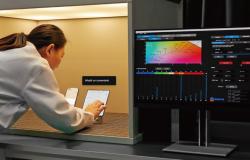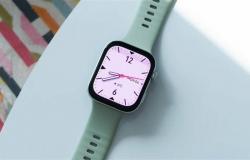With the arrival of summer and the start of vacations in some parts of the world, the risks of cyberattacks directed at tourists through their mobile devices increase.
During these rest periods, the use of mobile phones for various activities such as taking photographs, searching for addresses or making inquiries causes people to resort to public chargers, increasing their vulnerability.
One of the most recent attack methods is “juice jacking,” where cybercriminals install malicious software on devices through public USB ports. This malware allows them to access confidential information and take remote control of the victim’s mobile phone.
The use of infected USB cables in public places, such as airports or cafes, facilitates this type of cyberattacks. Cybercriminals plant altered charging devices that, when used by tourists, silently inject malware into the device.
To understand the magnitude of the problem, one must consider the different ways in which this type of attack can affect personal data. The compromised information can include everything from personal photos, contacts and messages to bank details and access credentials to various platforms.
The risk is considerable, as cybercriminals have the ability to sell this information on the black market or use it for fraudulent activities.
Cybersecurity experts recommend always carrying a portable charger or using your own charging cable. In emergency situations, It is suggested to disable the device’s data transfer before connecting to public charging points.
This preventive measure can provide an additional level of security, although it is not foolproof if the device has already been compromised by other means.
Besides, It is advisable to avoid sharing the charging cable with unknown peoplebecause it can also be a potential source of malware infection.
The threat is not just limited to “juice jacking.” Other methods such as “bluesnarfing,” which exploits the Bluetooth connection, are also becoming more common. In these types of attacks, criminals access mobile devices through unsecured Bluetooth connections.
Likewise, stolen information can include contact details, emails and even entire files stored on the mobile.
To protect yourself from this type of intrusion, It is important to keep Bluetooth turned off when not in use and set the device to be undetectable by other Bluetooth devices.
In addition to physical attacks through cables and connections, scams on online platforms, and fraudulent emails from public entities, evidence a growing sophistication in the tactics of cybercriminals. These methods trick users into providing personal or financial information under false pretenses.
Scams on trading platforms often involve offers that are too good to be true, while fraudulent emails from official institutions try to create a sense of urgency so that the victim acts rashly.
To protect yourself, It is essential to stay informed and follow the recommendations of cybersecurity specialists. Some of the measures that can be taken include:
- Whenever possible, use your own chargers or portable batteries. and ensure that both the operating system and applications are updated with the latest security patches.
- Use strong passwords and enable two-step authentication on all possible accounts.
- When connecting a mobile device to a public charging station, disable any features that allow automatic data transfer.
- Keep Bluetooth turned off when not in use and make sure to set the device to be undetectable.
- Be wary of emails or messages that request urgent personal or financial information, and always check their authenticity by contacting the institution in question directly.
Ultimately, the best defense against these cyberattacks is caution and awareness of the risks. Educating yourself on cybersecurity methods and staying informed about new tactics used by cybercriminals are key tools to protect yourself and enjoy a safe vacation.






